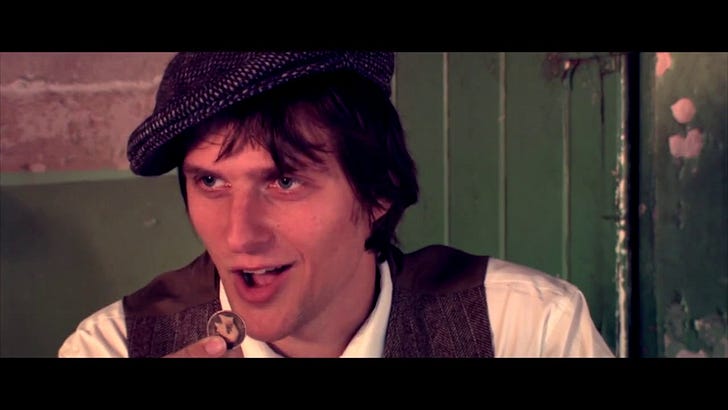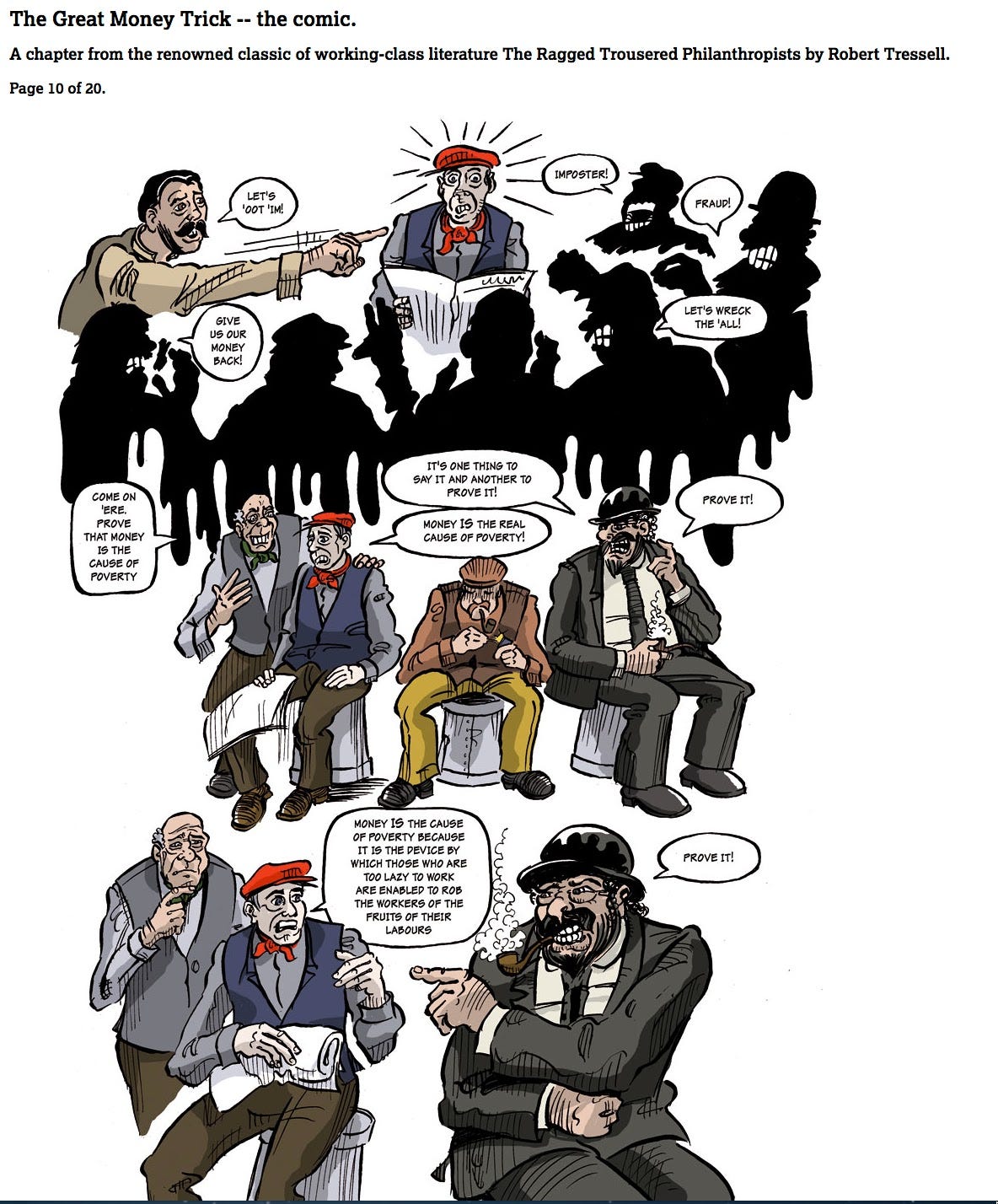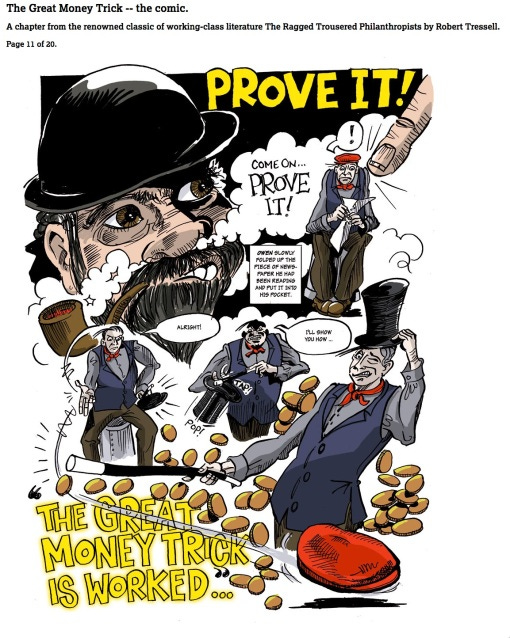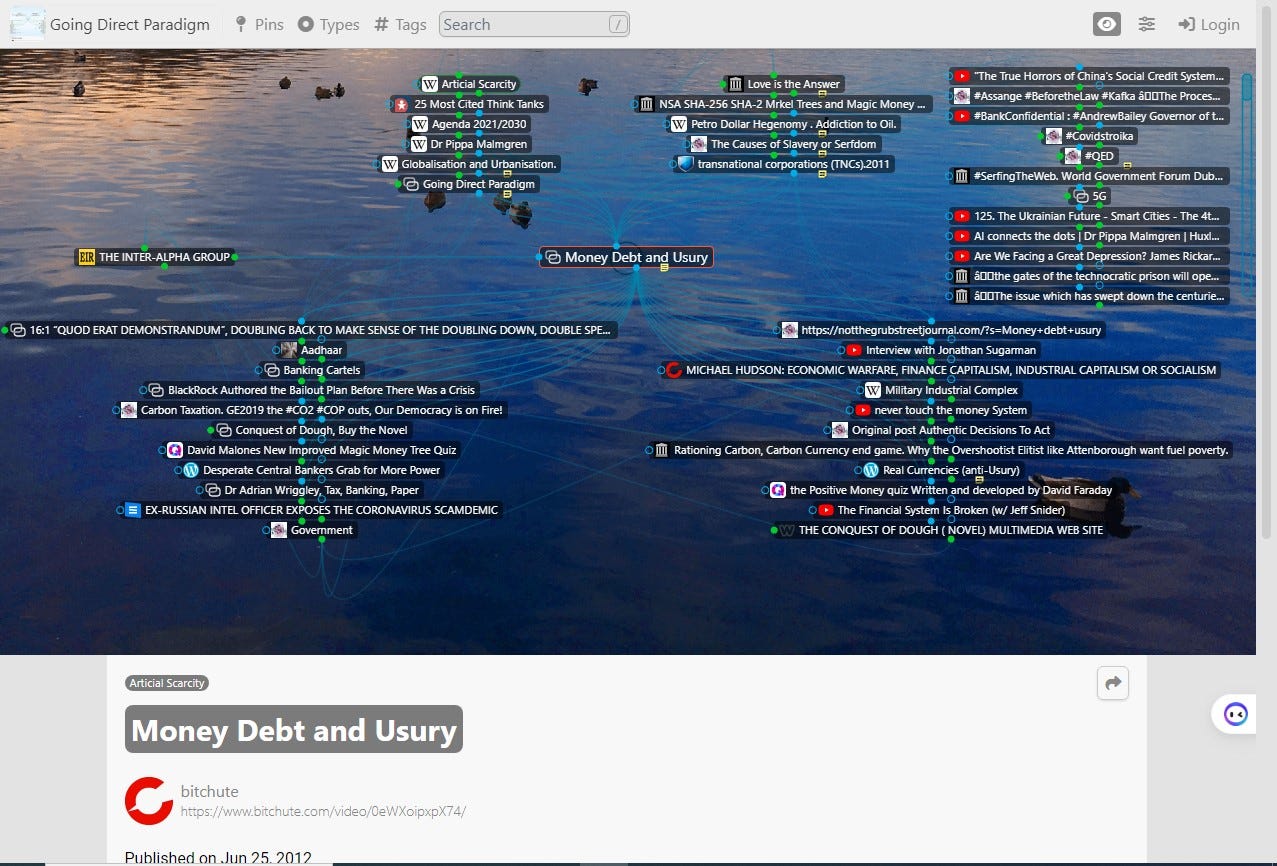THE GREAT MONEY TRICK. PAYING FOR PROMISES,
The Ragged-Trousered Philanthropists is a novel by Robert Tressell first published in 1914 after his death in 1911. An explicitly political work, it is widely regarded as a classic of working-class literature. It was placed seventy-second in the 2003 The Big Read survey conducted by the BBC.
http://www.avine.co.uk/great-money-trick/
THE RAGGED-TROUSERED PHILANTHROPISTS
From Wikipedia, the free encyclopedia
This article needs additional citations for verification. Please help improve this article by adding citations to reliable sources. Unsourced material may be challenged and removed. (September 2009) (Learn how and when to remove this template message)
The Ragged-Trousered Philanthropists
First edition
AuthorRobert Tressell a.k.a. Noonan, born CrokerCountryUnited KingdomLanguageEnglishPublisherGrant Richards
Publication date
23 April 1914Media typePrint (Hardback & Paperback)
The Ragged-Trousered Philanthropists is a novel by Robert Tressell first published in 1914 after his death in 1911. An explicitly political work, it is widely regarded as a classic of working-class literature. It was placed seventy-second in the 2003 The Big Read survey conducted by the BBC.
CONTENTS
[hide]
BACKGROUND[EDIT]
Robert Tressell was the nom-de-plume of Robert Noonan, a house painter. The illegitimate son of Mary Ann Noonan and Samuel Croker (a retired magistrate), he was born in Dublin in 1870 and settled in England in 1901 after a short spell living and working in South Africa.[1] He chose the pen name Tressell in reference to the trestle table, an important part of his kit as a painter and decorator. Based on his own experiences of poverty, exploitation, and his terror that he and his daughter Kathleen — whom he was raising alone — would be consigned to the workhouse if he became ill, Noonan embarked on a detailed and scathing analysis of the relationship between working-class people and their employers. The “philanthropists” of the title are the workers who, in Noonan’s view, acquiesce in their own exploitation in the interests of their bosses.
The novel is set in the fictional town of Mugsborough, based on the southern English coastal town of Hastings, where Noonan lived, although its geographical location is described in the book and is well away from the actual town of Hastings. The original title page of the book carried the subtitle: “Being the story of twelve months in Hell, told by one of the damned, and written down by Robert Tressell.”
He completed The Ragged-Trousered Philanthropists in 1910, but the 1,600-page hand-written manuscript was rejected by the three publishing houses to which it was submitted. The rejections severely depressed Noonan, and Kathleen had to save the manuscript from being burnt. She placed it for safekeeping in a metal box underneath her bed.
After Noonan died of tuberculosis, Kathleen was determined to have her father’s writing published and showed it to a friend, the writer Jessie Pope. Pope recommended the book to her own publisher, who bought the rights in April 1914 for £25. It was published that year in much abridged form in the United Kingdom and in an even more abridged form (90,000 words, from the original 250,000), in 1918.[2] It was also published in Canada and the United States in 1914, in the Soviet Union in 1920, and in Germany in 1925. The publisher removed much of the socialist ideology from the first edition; an unabridged edition with Noonan’s original ending was not published until 1955, edited by F.C.Ball, who also wrote two biographies of Tressell, Tressell of Mugsborough (1951), and One of the Damned:The Life and Times of Robert Tressell (1973).
PLOT INTRODUCTION[EDIT]
Clearly frustrated at the refusal of his contemporaries to recognise the inequity and iniquity of society, Tressell’s cast of hypocritical Christians, exploitative capitalists and corrupt councillors provide a backdrop for his main target — the workers who think that a better life is “not for the likes of them”. Hence the title of the book; Tressell paints the workers as “philanthropists” who throw themselves into back-breaking work for poverty wages in order to generate profit for their masters.
The hero of the book, Frank Owen, is a socialist who believes that the capitalist system is the real source of the poverty he sees all around him. In vain he tries to convince his fellow workers of his world view, but finds that their education has trained them to distrust their own thoughts and to rely on those of their “betters”. Much of the book consists of conversations between Owen and the others, or more often of lectures by Owen in the face of their jeering; this was presumably based on Tressell’s own experiences.
—








